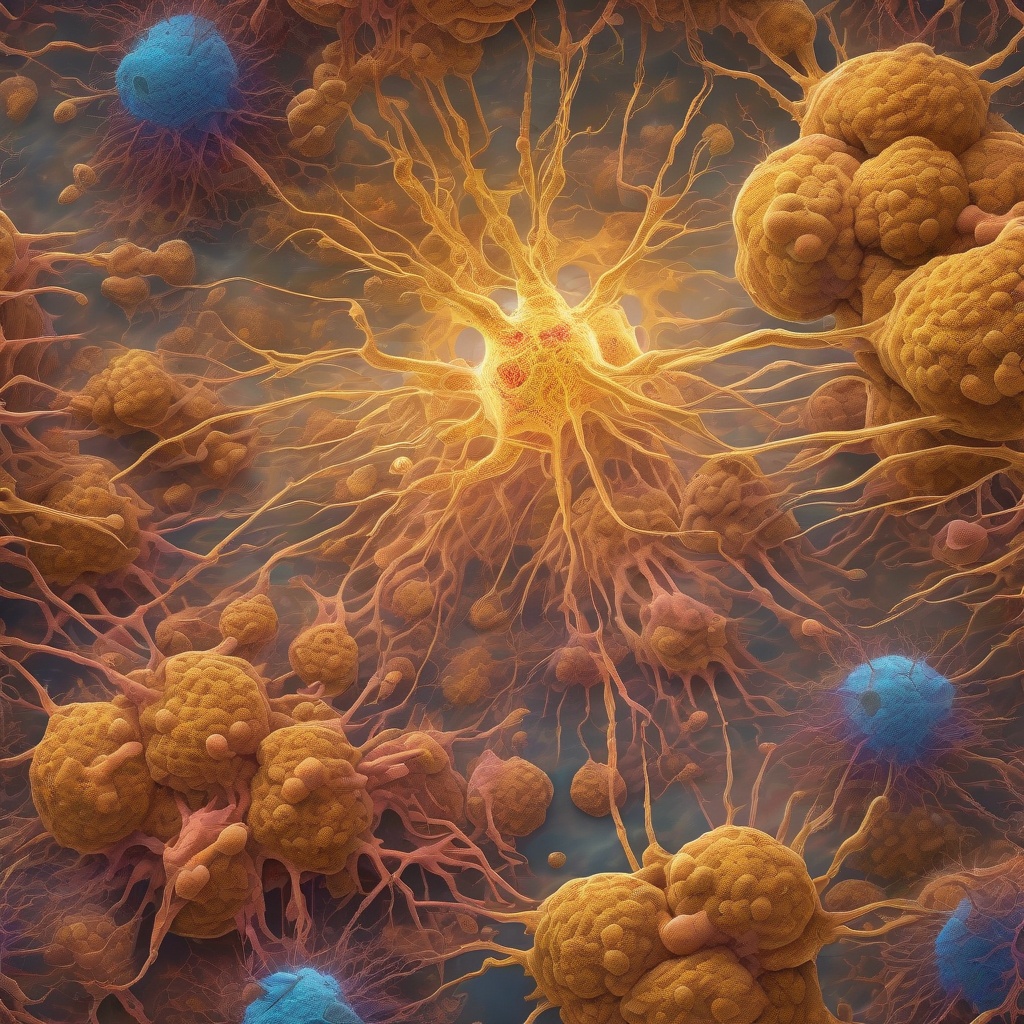Mast Cells Induce Tolerogenic Dendritic Cells to Enhance Immune Tolerance Mechanisms Effectively
Immune tolerance is a crucial aspect of maintaining homeostasis in the body, preventing excessive immune responses that can lead to tissue damage and autoimmune diseases. Recent research has shed light on the role of mast cells in inducing tolerogenic dendritic cells, which play a key role in enhancing immune tolerance mechanisms. In this blog post, we will explore the findings of a recent study published in the journal Frontiers in Immunology, which highlights the importance of mast cells in promoting immune tolerance.
The Role of Dendritic Cells in Immune Tolerance
Dendritic cells are a type of immune cell that plays a crucial role in initiating and regulating immune responses. They can present antigens to T-cells, activating them to respond to pathogens or foreign substances. However, dendritic cells can also induce tolerance by presenting antigens in a way that suppresses T-cell activation. This is achieved through the production of tolerogenic dendritic cells, which are characterized by the expression of indoleamine 2,3-dioxygenase (IDO).
Mast Cells and Their Role in Immune Tolerance
Mast cells are a type of immune cell that is often associated with allergic reactions and inflammation. However, recent research has shown that mast cells can also play a role in promoting immune tolerance. One of the key ways in which mast cells induce tolerance is through their interaction with dendritic cells.
A recent study published in Frontiers in Immunology found that mast cells expressing programmed cell death-1 (PD-1) can induce tolerogenic IDO+ dendritic cells. PD-1 is a checkpoint molecule that is expressed on the surface of immune cells, including mast cells and T-cells. It plays a crucial role in regulating immune responses and preventing excessive inflammation.
The Study: Mast Cells Induce Tolerogenic Dendritic Cells
The study, led by Cecilia Pessoa Rodrigues and Ana Carolina Franco Ferreira, investigated the role of mast cells in inducing tolerogenic dendritic cells. The researchers found that mast cells expressing PD-1 can induce IDO+ dendritic cells, which are characterized by their ability to suppress T-cell activation.
The study used a combination of in vitro and in vivo experiments to demonstrate the role of mast cells in inducing tolerogenic dendritic cells. The researchers found that mast cells expressing PD-1 can interact with dendritic cells, leading to the production of IDO and the suppression of T-cell activation.
Mechanisms of Mast Cell-Induced Tolerogenic Dendritic Cells
The study found that mast cells induce tolerogenic dendritic cells through a number of mechanisms, including:
- PD-1/PD-L1 interaction: The interaction between PD-1 on mast cells and PD-L1 on dendritic cells plays a crucial role in inducing tolerogenic dendritic cells.
- IDO production: Mast cells induce the production of IDO in dendritic cells, which suppresses T-cell activation.
- Cytokine production: Mast cells produce cytokines, such as TGF-β and IL-10, which promote the production of tolerogenic dendritic cells.
Implications of the Study
The study has important implications for our understanding of immune tolerance mechanisms. The findings suggest that mast cells play a crucial role in promoting immune tolerance by inducing tolerogenic dendritic cells. This has significant implications for the treatment of autoimmune diseases, such as rheumatoid arthritis and multiple sclerosis, where immune tolerance is impaired.
The study also highlights the potential for targeting mast cells and dendritic cells in the treatment of immune-related disorders. For example, therapies that enhance the expression of PD-1 on mast cells or promote the production of IDO+ dendritic cells may be effective in promoting immune tolerance.
Conclusion
In conclusion, the study published in Frontiers in Immunology highlights the importance of mast cells in inducing tolerogenic dendritic cells to enhance immune tolerance mechanisms. The findings have significant implications for our understanding of immune tolerance and the treatment of autoimmune diseases. Further research is needed to fully elucidate the mechanisms of mast cell-induced tolerogenic dendritic cells and to explore the therapeutic potential of targeting these cells in immune-related disorders.



